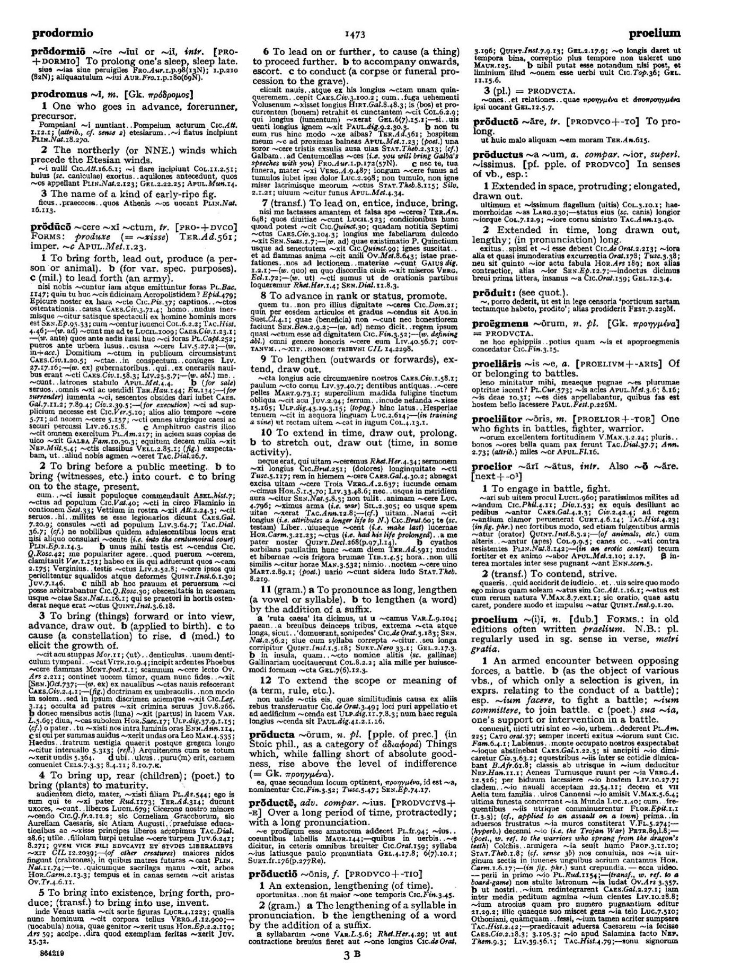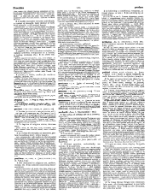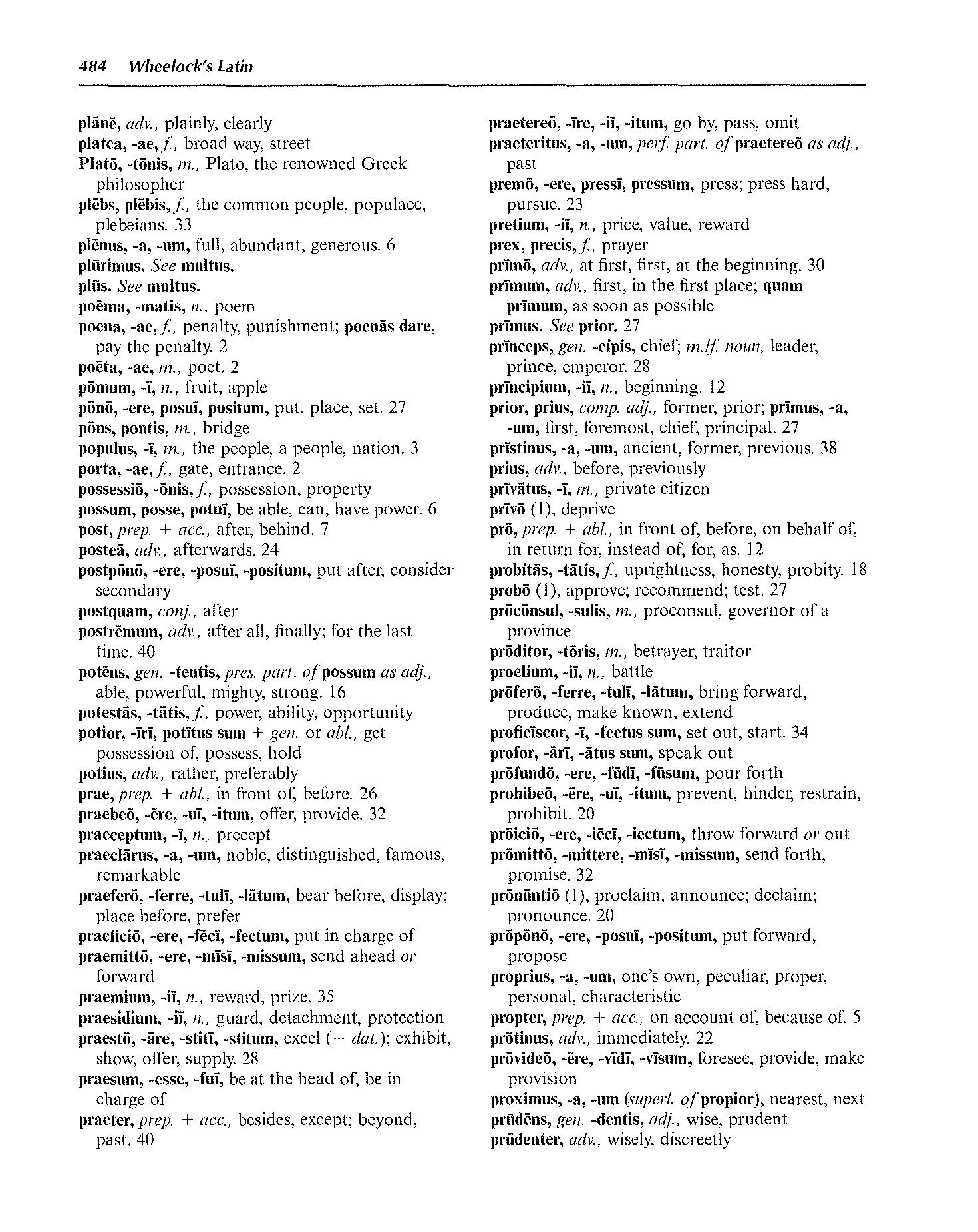
page_listing.tpl
page_subListingDetails.tpl
sub_listingDetails_style1.tpl
sub_listingDetails.title.tpl
proelium battle
proelium is a Latin Noun that primarily means battle.
Definitions for proelium
Wheelock's Latin
Noun
- 1
battle
Oxford Latin Dictionary
Noun
- 1
An armed encounter between opposing forces, a battle. (b) (as the object of various vbs., of which only a selection is given, in exprs. relating to the conduct of a battle); esp. ~ium facere, to fight a battle; ~ium committere, to join battle. (c) (poet.) sua ~ia, one's support or intervention in a battle.
- 2
A hostile encounter between individuals, a contest of strength, fight (formal or not). (b) (of animals). (c) (of natural forces).
- 3
(applied, sts. with conscious metaphor, to various activities comparable to a battle): (a) (eating, drinking, etc.). (b) (in erotic contexts).
Sentences with proelium
Latin to English
Velle ac nolle ambobus idem societaque toto mens aevo ac parvis dives concordia rebus. Occubuere simul; votisque ex omnibus unum id Fortuna dedit, iunctam inter proelia mortem.Compare In liking and disliking they never differed; it was a lifelong marriage of two minds; and brotherly love made them rich in poverty. In death they were not divided, and of all their prayers Fortune granted them one only - to die in battle side by side.
Semper in proelio eis maxumum est periculum qui maxume timent, audacia pro muro habetur.Compare In battle it is always those who are most afraid who are exposed to the greatest dangers; courage acts as a protecting wall.
Unus aut summus alter proelium arx et caput Italia in manus habeo.Compare By one or at most by a second battle we shall have the citadel and capital of Italy in our hands.
Qui supersum proelium, in oppidum suus dilabor.Compare Those, who survived the battle, slipped away to their own towns.
Declension table for proelium
Cactus2000
| Singular | Plural | |
| Nom. | proelium | proelia |
| Gen. | proeliī | proeliōrum |
| Dat. | proeliō | proeliīs |
| Acc. | proelium | proelia |
| Abl. | proeliō | proeliīs |
Data sources
Notes
- Definitions
- Frederick M. Wheelock, Wheelock's Latin, 6th ed., rev. Richard A. LaFleur (New York, NY: HarperCollins Publishers, 2005): 484.
- P. G. W. Glare, Oxford Latin Dictionary, Vols. 1-8 (Oxford: Clarendon Press, 1982): 1473.
- Word frequencies
- Christopher Francese, "Latin Core Vocabulary," Dickinson College Commentaries, last modified 2014, http://dcc.dickinson.edu.
- Paul B. Diederich, The Frequency of Latin Words and Their Endings, PhD diss., (Columbia University, 1939).
- Louis Delatte, Suzanne Govaerts, Joseph Denooz, and Etienne Evrard, Dictionnaire fréquentiel et index inverse de la langue latine [Frequency Dictionary and Inverse Index of the Latin Language] (Liège, Belgium: Laboratoire d'analyse statistique des langues anciennes de l'Université de Liège [L.A.S.L.A.], 1981): 121.
Bibliography
Allen, Joseph H. Allen and Greenough's New Latin Grammar for Schools and Colleges: Founded on Comparative Grammar. Edited by James B. Greenough, George L. Kittredge, Albert A. Howard, and Benjamin L. D'Ooge. Boston, MA: Ginn & Company, 1903.
Crystal, David. A Dictionary of Linguistics and Phonetics. 6th ed. Oxford, UK: Blackwell Publishing, 2008.
Delatte, Louis, Suzanne Govaerts, Joseph Denooz, and Etienne Evrard. Dictionnaire fréquentiel et index inverse de la langue latine [Frequency Dictionary and Inverse Index of the Latin Language]. Liège, Belgium: Laboratoire d'analyse statistique des langues anciennes de l'Université de Liège (L.A.S.L.A.), 1981.
Diederich, Paul B. The Frequency of Latin Words and Their Endings. PhD diss., Columbia University, 1939.
Francese, Christopher. "Latin Core Vocabulary." Dickinson College Commentaries. Last modified 2014. http://dcc.dickinson.edu/latin-vocabulary-list.
Gildersleeve, Basil L., and Gonzales Lodge. Gildersleeve's Latin Grammar: Third Edition, Revised, and Enlarged. 3rd ed. London, England: Macmillan and Co., 1903.
Glare, Peter G.W. Oxford Latin Dictionary. Vols. 1-8. Oxford, England: Clarendon Press, 1982.
Krüger, Bernd. "Latin Conjugation Tables." Cactus2000. Accessed May 5, 2023. https://latin.cactus2000.de/index.en.php.
Pierson, Nick. "Sound of Text." Accessed October 26, 2019. https://soundoftext.com.
Wheelock, Frederick M. Wheelock's Latin. 6th ed. Revised by Richard A. LaFleur. New York, NY: HarperCollins Publishers, 2005.
Wiktionary Contributors. "Victionarium." Wikimedia Foundation, Inc. Updated March 18, 2019. https://la.wiktionary.org/wiki/Victionarium:Pagina_prima.
Citation
Chicago (17th ed.)
Allo Contributors. "proelium, proeliī (n.) - Latin Word Definition." Allo Latin Dictionary. Last modified . Accessed February 20, 2026. http://ancientlanguages.org/latin/dictionary/proelium-proelii.
Entry created on . Last updated on .








